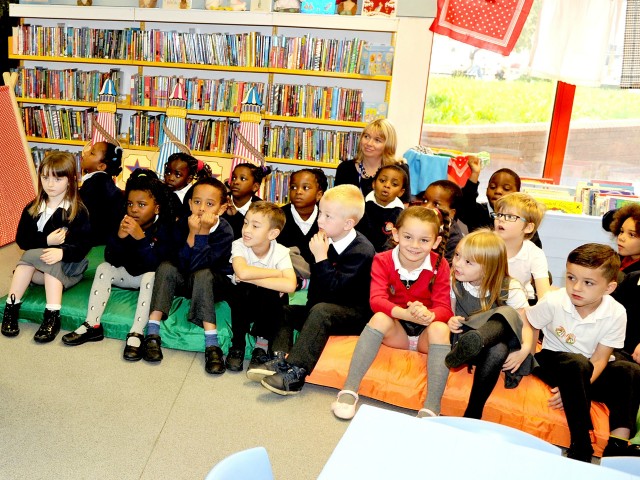Primary schools should stock books and learning resources which “celebrate” transgender people, according to new Government-backed guidelines aimed at fighting prejudice.
Guidance released Wednesday by the National Association of Head Teachers (NAHT) — which represents nearly 30,000 school leaders, most of whom are primary heads — instructs schools to “ensure the visibility” of transgender perspectives in the classroom.
The document was specifically drawn up to advise schools on how best to make transgender staff, “students”, and pupils with transgender parents “feel positively represented in lesson content and welcomed in the school environment”.
“Primary school leaders may want to ensure books featuring trans parents or celebrating gender identity and difference are included in the curriculum,” states the guidance, which is expected to be rolled out at primaries across the UK.
Sex ed for toddlers https://t.co/Xx9GnnOAho
— Breitbart London (@BreitbartLondon) April 18, 2017
Schools should also “clearly communicate” their “commitment to equality and inclusion”, in newsletters and on social media, “with specific mention made” of transgender issues, according to the guidelines, in which primaries are also advised to force parents and pupils to sign a “detailed contract of inclusivity”.
‘The role of school leaders” in advancing the trans agenda in schools, the NAHT tells its members, involves “forbidding complaints (or fear of complaints) from parents, governors or staff members to interfere with their commitment to an inclusive school environment.”
The document also tells headteachers to make sure dress codes are “modified to avoid gender stereotypes”, warning that “gendered” uniform lists with specific items for men and women “may not be appropriate for gender fluid or non-binary individuals”.
The guidance was endorsed by the Conservative government, a spokesman of which told the Telegraph: “We welcome any initiative which supports LGBT staff in schools, helping to create a more inclusive environment and enable them to fulfil their potential.”
Cross-Dressing ‘Queer Role Models’ Read to Toddlers to Stop ‘Hate Crimes’ https://t.co/6lp2qo61wD
— Breitbart London (@BreitbartLondon) November 13, 2017
But, pointing out that “only a tiny percentage of people in the UK identify as transgender”, UKIP education spokesman David Kurten blasted the NAHT advice as “wrong”, asserting that “requiring schools and teachers to ‘celebrate’ transgenderism is totalitarian”.
“The government and unions should stop pushing fringe ideologies and start listening to the vast majority of parents who do not want their children exposed to this transgender propaganda,” he told Breitbart London.
Mr Kurten added that the government’s plans to make‘sex and relationships’ education compulsory in primary schools from September 2019 is “deeply worrying” to families across the UK.
“Parents are the primary educators of their children, and they should have the final say in passing on values to their own children,” he said.
Concerns about the plans have also been voiced by other figures, with co-editor of the Conservative Woman, Laura Perrins, who told the Daily Mail: “This radical, ideological guidance is being introduced with no consultation with parents and has real potential to confuse children.”
Christian Teacher Suspended for ‘Misgendering’ Pupil https://t.co/yAv4gYPHkF
— Breitbart London (@BreitbartLondon) November 12, 2017
And former Government advisor Chris McGovern, who leads the Campaign for Real Education, said: “Indoctrination in the politically correct anxieties, passions and neuroses of adults has no place in school.
“This latest intrusion into childhood will cause upset, confusion and trauma for many youngsters. Inflicting this emotional baggage on to children is a form of cruelty that could be legally challenged by its victims,” he told the Times.
“The only lesson children need to learn is to treat others as you would wish to be treated.”
Earlier this month, the Telegraph reported that the government will send 3,000 therapists into schools in a bid to tackle an“epidemic of anxiety” and mental health problems among young people in Britain, after a report revealed that soaring numbers of children are receiving psychiatric treatment — with the steepest rise seen among those aged nine and under, the figure for which jumped by a third in just one year.

COMMENTS
Please let us know if you're having issues with commenting.